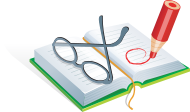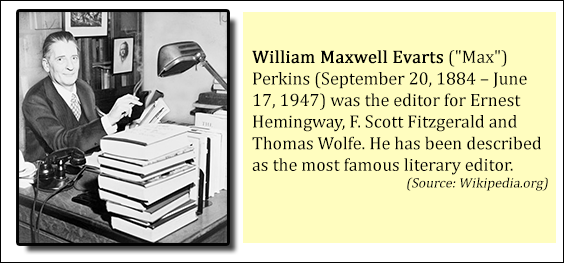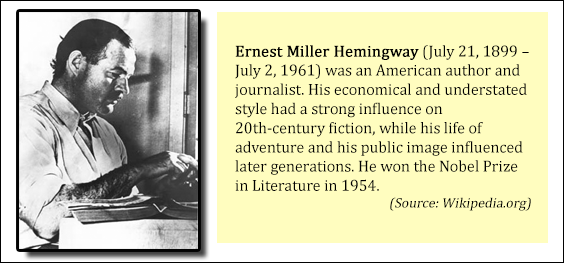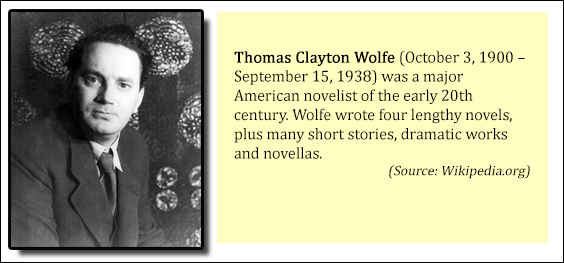Making the decision to self-publish takes a certain bravado. You’re not necessarily thumbing your nose at the publishing establishment, but you are taking on their role for the most part. This takes courage, hard work, and an attitude that backs your own skills and potential. All good. What may not be so good though, is when this bravado turns to arrogance, as in: “I can do this whole damn thing myself!” Because when it comes to editing your work, you can’t—and shouldn’t even try.
Why traditional publishing works
Going through traditional publishing channels is getting harder and harder as the population of writers continues to boom. It makes sense then to look at self-publishing as a viable alternative. As you pursue these avenues it pays to heed what exactly it is that publishers do well so that you can mimic this yourself.
 In my opinion, one of the most important services a publisher can offer is quality editing. Traditional publishing houses are driven by editing that exercise a distinct literary taste, a sense for structure and style, and an ability to maintain an author’s voice while keeping it in tune. It’s these core qualities that set them apart.
In my opinion, one of the most important services a publisher can offer is quality editing. Traditional publishing houses are driven by editing that exercise a distinct literary taste, a sense for structure and style, and an ability to maintain an author’s voice while keeping it in tune. It’s these core qualities that set them apart.
When I started writing I was painfully aware of my need for good editing. I wanted to improve as a writer but not within the commercial labyrinth of the publishing world. So, when I started to develop my first self-published project I began by looking into what the great editors of established publishing houses actually did. In this way I could start learning some basic skills myself and, more importantly, I could start asking for the kind of help I’d soon be needing.
The traits of great editors
 Great editors champion the author and their project. One legendary example of this is the way Max Perkins fought to get Ernest Hemmingway’s early work published despite the disputes over his use of profanities. A good editor believes in who they’re working with and will find ways to both improve the work—as Perkins also did for Thomas Wolfe by curtailing his prolific word count—and fight through the system to get those words in print. It’s as much a matter of faith in the project as it is of content or style.
Great editors champion the author and their project. One legendary example of this is the way Max Perkins fought to get Ernest Hemmingway’s early work published despite the disputes over his use of profanities. A good editor believes in who they’re working with and will find ways to both improve the work—as Perkins also did for Thomas Wolfe by curtailing his prolific word count—and fight through the system to get those words in print. It’s as much a matter of faith in the project as it is of content or style.
 Great editors offer an objective overview. Their literary taste and good writing sense allows them to see the project with a bird’s eye view that stands apart from the writer’s inner world. This objectivity, along with their belief in the project, provides an essential perspective for improving the overall results.
Great editors offer an objective overview. Their literary taste and good writing sense allows them to see the project with a bird’s eye view that stands apart from the writer’s inner world. This objectivity, along with their belief in the project, provides an essential perspective for improving the overall results.
 Great editors provide advice on structure and clarity as the writing develops. When they suggest global changes, or tell you that they just can’t see the point you’re trying to make, they’re doing so from their deep knowledge of story structure.
Great editors provide advice on structure and clarity as the writing develops. When they suggest global changes, or tell you that they just can’t see the point you’re trying to make, they’re doing so from their deep knowledge of story structure.
 Finally, a great editor maintains the work’s style and consistency. They do this by what’s called “line editing”; that is, the basic line by line checking for spelling, grammar, punctuation, and other matters of style. This tedious task is an essential skill that ensures nothing will get in the way of the final reader’s experience. Which at the end of the day is ultimately what great editors do best—they allow the real strength of your ideas to make it through the grid of their skill set so that your audience gets the best you have to offer.
Finally, a great editor maintains the work’s style and consistency. They do this by what’s called “line editing”; that is, the basic line by line checking for spelling, grammar, punctuation, and other matters of style. This tedious task is an essential skill that ensures nothing will get in the way of the final reader’s experience. Which at the end of the day is ultimately what great editors do best—they allow the real strength of your ideas to make it through the grid of their skill set so that your audience gets the best you have to offer.
Kids, don’t try this at home
I mentioned earlier that the more you knew about the publishing process the more you could mimic it yourself. And, as we’ll see, there are lots of things you can do to improve your own editing skills. However, in my experience in the self-publishing process, the one thing you can’t replace completely is the role of a skilled outside editor. Here are a few reasons why:
- You’re too close to your own project to see its larger and smaller mistakes. In order to draw out your best work, someone outside of your head needs to offer feedback on what you’re doing.
- You probably don’t have all the skills a good editor brings to the table.
- Your craft is as a writer, therefore your time is best spent focusing on the creative aspects of writing that only you can do.
- You think your work is so good that it really doesn’t need editing (this is when you need an editor most!).
- You can learn a lot about writing from a good editor. These are lessons you can’t get if you do it all yourself.
What you can do about editing
Through the process of having my first three books well edited I’ve adopted a few things that help me constantly improve. You may also like to apply these skills to each draft, so that when you employ a professional editor they’ll have less of the menial work to do and more time to focus on the clarity of your expression, the book’s overall structure, and the best telling of your story. This is really important as you’ll be paying them and you’ll want your money spent well. Here are a few self-editing tips I’ve picked up:
- Be consistent when it comes to style. Have a quick read of some style guides, choose one that’s appropriate to your purposes, and stick with it throughout. You could also get some initial advice from an editor and stick with the style you both agree on.
- Schedule in periodic re-reads of your work in order to catch redundancies. Learn to catch when you are repeating yourself and look out for unnecessary story elements. Be brutal so that your strongest ideas are clear, concise, and placed where they belong.
- Develop the craft of forming great sentences and paragraphs. Be descriptive while trying to be economic with adjectives. Focus on using great verbs that move your prose forward.
- Keep your eye on the overall structure of your work. Have a great outline to start with or some self-made tool to help you stay focused (like a story board or index cards with scribbled notes stuck to the wall).
- Join a writers group or get some casual help from a friend who’s good with words to provide you with basic objectivity and feedback. Be careful though, as you don’t want to throw the doors open to just any non-professional input. Choose people who you think can be truly constructive.
You’ll get better at seeing any bumps in your work (or feeling them) with each day. The more you can take out those little things you know don’t work the less your editor will eventually have to deal with.

Hiring a professional editor
Now that you’ve done your best self-editing along the way, it’s time to spend a bit of money to really elevate your project. Choosing the right editor requires you to have a good grasp on what your work is about and who it’s for. You’ll need to do a bit of research to find someone who’s good at editing whatever it is you’re good at writing about.
Scan a number of websites to get a feel for what’s on offer, paying special attention to the editor’s genre and previous experience. There are quite a few good editors who’ve worked for the larger publishing houses and have now struck out on their own. They’re a bit pricier but well worth the money if they believe in you and you in them.
You may like to consider having a more experienced genre editor give you a structural edit (covering story structure, your manuscripts overall strengths and weaknesses, etc.) and then pay a less expensive editor to do your copy or line editing.
Once you decide on your preferred editing solution, present your best work and be ready to learn, re-write, and constantly improve your storytelling. This will set you up for the next phase of self-publication (covered in my next article): printing and distribution for self-publishing.
Helpful resources for editing
In choosing an editor, you want to try and match your work with their skills. Here’s a few links to develop that process. Start here but have a good look around before you commit to an editor. A general link to start out and get a feel for what’s being offered:
The Writers’ Workshop
“Manuscript editing services: Why use us?”
The Oxford Editors
http://www.theoxfordeditors.co.uk
And especially look out for sites like this:
Betsy Mitchell Editorial Services
http://betsymitchelleditorial.com
 For fantasy and science fiction have a look at:
For fantasy and science fiction have a look at:
Science Fiction & Fantasy Writers of America
“Writers Beware”
For crime fiction have a look at:
David Corbett Editing Services
http://www.davidcorbett.com/book-doctor.php
About the author:
Patrick Dodson is an international public speaker covering topics ranging from personal development to shifting cultural trends. Over the last four years, borrowing from his professional experience, he’s published three books: Stuff my Father Never Told Me About Relationships in 2009, Psychotic Inertia in 2010, and The Identity Project in 2011. These books are available worldwide both in print and ebook formats. He’s currently living in a cabin by a remote lake working on two new books, his second screenplay, and eating like a king (one of the books is a cookbook). Visit his website at http://www.patrickdodson.net
Also by Patrick Dodson:
Part 1: The Craft of Writing for Self-Publishing
Part 3: How to Print and Distribute Your Self-Published Book
Part 4: The Craft of Marketing Your Self-Published Book






